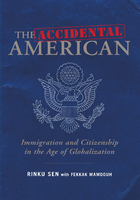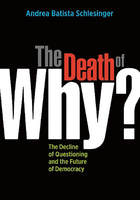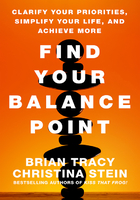I have an unconventional job. I use improvisation as the catalyst to train and consult with leadership and business teams. We get results. But when you strip away the fancy language in my sales brochure, it all comes down to the fact that I offer an education in trust—creating it, earning it, keeping it.
I certainly never set out to be a trust specialist. During my early years in business, I didn’t realize that I was honing my skills for my current work. I worked in the network engineering industry in New York City for six years, and I was able to consistently close high-margin deals and create long-term relationships with my clients. Though I moved to new companies several times, my clients always followed me and continued doing business with me.
Before New York, I was a professional actor and improviser, based in Chicago for eight years. During that time, I had the same conversation with nine different directors. Some version of “It’s been a relief to have you in the show. I can trust that you’ll be prepared and won’t steal focus.” They didn’t realize that I was terrified of screwing up or not being seen as a team player, so I overprepared and showed up early and eager.
However, it really came home to me through the eyes of my account manager in a business I now own. Beginning during her first week on the job, she would shake her head at me and say, “I’ve never been in a meeting where so many high-level executives trusted our word and were excited to play games!” or “I’ve never watched a team interact like this ensemble. There are no egos, and you all get so much done so quickly.”
I could do this, and so could the special people in my ensemble, because we’re improvisers. The innate skills, philosophy, and behaviors of improvisation are radically collaborative, and when you are able to adapt and collaborate on such a high level, you intrinsically engender trust. For more than a decade, we’ve been using the philosophy and exercises of improvisation to create transformative experiences for people in corporations. Adopting an improviser’s mindset and behaviors is a radical new way to make yourself and your organization more profitable, innovative, and trusted.
Improvisers must work in an environment of trust. Improvisation, by its nature, is one of the riskiest, most uncertain fields of performance. It requires a group of performers to create a scene, game, or play without a script. We don’t really know what our troupe members will say or do from moment to moment, yet we are able to create incredible shows on the fly. Every improviser relies on her partners, her audience, and her own ability to listen and change to create something, under pressure, in every performance.
Basing my life’s work on two such different worlds—the corporate setting and the improvisational stage—sounds very unlikely, I know. So how did we connect business and improv?
I learned about improvisational comedy as an undergraduate at Yale, in the Purple Crayon improv troupe. We performed, got other college troupes off the ground, and kept in touch over the summers. I even studied briefly with the legendary Del Close, the father of long-form improvisation.
Through those experiences, I learned the underlying practices of improvisation as well as some things most people don’t know about improvisation: Improv has a clear set of guidelines. Improvisers practice and work at their craft like crazy. Improvisers trust their troupe members implicitly. Really brilliant improv is about finding the least obvious, most surprising outcome in any situation.
These improvisational practices became a part of my DNA. I stopped thinking about these skills and just lived them. It never occurred to me that those improv guidelines might have very strong underlying principles—that the secrets of improvisation were also the secrets of high-performing business teams.
After graduation, I lived two unexpected and utterly different lives. My first life was in performance and improv. I had a great career as a professional improviser and actor. I got paid for my work, trained at the Second City Training Center, and even launched a few improv troupes of my own. Commercials and TV paid the bills, but my passion was experimental, edgy, black-box theater. Professional performance also gave me a thick skin and a propensity to see silver linings. When you audition twenty times and come up with only one part, you become very resilient and practiced.
Things kept improving as I persisted, and I had more than seven solid years of constant work. I was really lucky, really driven, and had a good agent. I did over one hundred live productions.
Then I married, moved to New York for my husband’s work, and one day, quite suddenly, realized I was done. I was more than ready for something new. I needed a new challenge for both my brain and my happiness. And I really missed my new husband. He worked during the day and I worked six nights a week.
I dialed my agent in the middle of the day and just quit. We both cried a little but I mostly felt excited and scared. Now I would have to plunge into something new.
So my second life was in network engineering. It was the middle of the nineties and the Internet craze. New York had been affectionately dubbed Silicon Alley, and if you could chew gum and walk at the same time, you could probably get a job in technology, with stock options. Plus, I read a book that passionately convinced me that techies really needed a people person like me! And what do you know, Merrill Lynch hired me as a short-term consultant on a Year 2000 hardware assessment.
Let’s just pause here. Remember, I was a liberal arts–educated actor. I wouldn’t have been able to identify a server if it had fallen on me. But you better believe that I crammed and searched the Internet all night before my interview. Then I was completely honest about my limitations. I promised to be passionate and dedicated, I asked a ton of questions, and I used all of my stored-up improv secrets during the interview. They trusted me when I said I would be able to do the job. I got the gig. And I delivered.
That consulting job was followed by intense stints in three different network engineering start-ups over the next six years. One went public, one remained private, and one was acquired. Despite my lack of experience, I got to head up sales and marketing, helped to open regional offices, and worked seventy-hour weeks. It was a crazy, fantastic, sometimes awful, all-consuming business education, and I loved it.
Simultaneously, two of my friends from Yale, Frances Barney and Mike Everett—also liberal arts–educated actor types—were moving up the ladder in banking and administration. We’d cram and study all night and think on our feet during the day. Then we would have overcaffeinated lunches where we described getting through yet another meeting by collaborating rather than telling, or coming up with a solution no one else had considered, or making a mistake in the office that we turned to our advantage.
It became such a consuming subject that Frances wrote a paper on the idea that improvisation could inform better business practices, for an MBA class at the Wharton School. Professor Michael Useem, who has my gratitude to this day, said, “I think this has legs. Why don’t you try it out with my class?” Our company, ImprovEdge, was born.
For more than twelve years, we have conducted research and facilitated learning workshops and development programs, using improv as the catalyst. Our research has uncovered four key principles, based on the secrets of improvisation, that can help accelerate your life, your career, your team, and your organization.
This book is all about how the behaviors of improv enable teams to collaborate on a radical level. And the incredible outcome of those behaviors is trust. This book will explore each of these improv secrets and demonstrate how they are directly related to adaptability, improving organizational performance, and building trust.
The introduction, “Your Biggest Problem at Work and the Most Unexpected Solution,” examines how our issues at work are tied to the need to collaborate, to be flexible, and most important, to have and engender trust, and will explain how the four secrets of improvisation are the solution.
Chapter one, “The First Secret of Improvisation: Yes! Space,” details how positivity and acceptance create deep capabilities for collaboration, innovation, and engagement.
In chapter two, “The Second Secret of Improvisation: Building Blocks,” we will look at why and is a really big word and how critical it is to get in there and play.
Radical collaboration using the improviser’s mind-set is explored in chapter three, “The Third Secret of Improvisation: Team Equity.” One of the components of Team Equity is equity, not equality; great teams are not about equal input but about leveraging the strengths of the team and using individual talents to work toward a goal.
My favorite part of improvisation, and one of the clear markers of successful businesspeople, is the ability to deal with the unexpected. In chapter four, “The Fourth Secret of Improvisation: Oops to Eureka!,” we explore how you’re OK even if you screw up, and how the unexpected can create advantages. We also look into mind-set and flexible behaviors.
Each chapter also describes three critical components of each secret and shares hands-on behaviors and exercises that enable you to start adopting the improviser’s mind-set. The exercises in this book are not just for master improvisers or professional facilitators. They are for you. They are for anyone willing to try something new.
Finally, in “Practice. Then Celebrate!” we remember the critical importance of practicing new behaviors and celebrating success. The secrets of improvisation only work if you put them into practice, and every time you have even the smallest success you must enjoy and celebrate that step.
Each chapter presents research that ties together collaboration, trust, and improv. I hope you’ll also enjoy the stories and case studies from real companies that have used improvisational behaviors to build adaptability and trust within their organizations. This book will provide you with hands-on, immediately usable exercises to adopt an improviser’s mind-set. I invite you to use this book to transform yourself, your team, and your organization.















